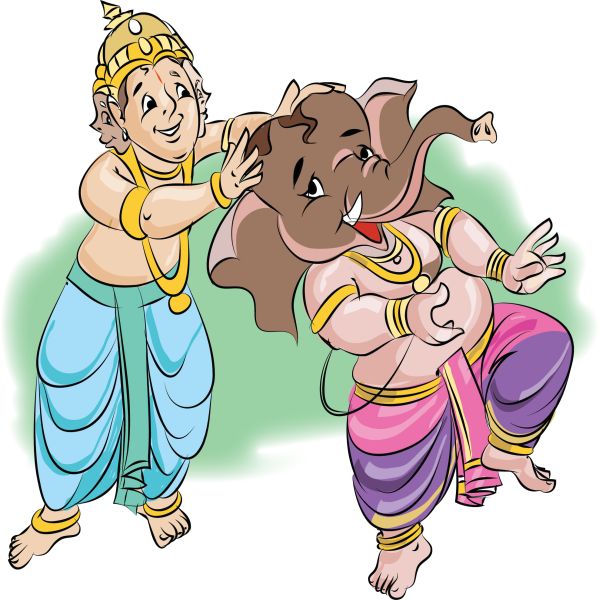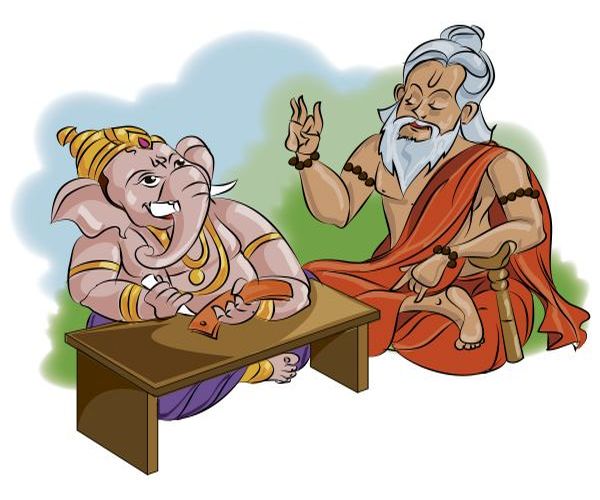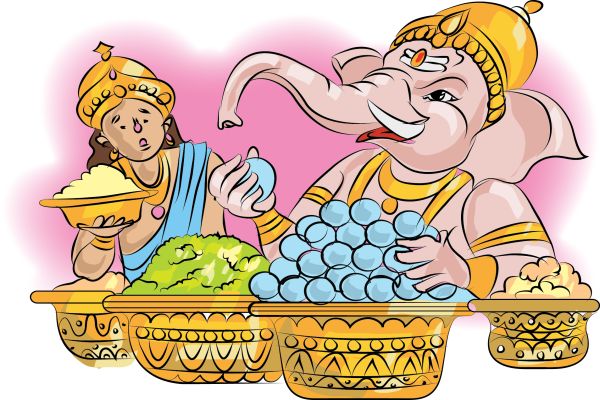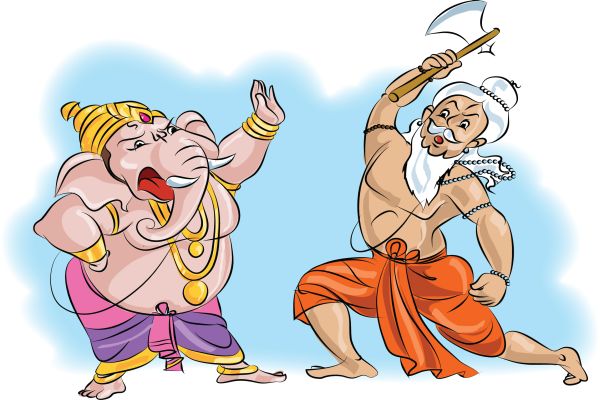Celebrating Ganapati
- POSTED ON: 7 Sep, 2018
- TOTAL VIEWS: 2081 Views
- POSTED BY: Madhuvanti S. Krishnan
- ARTICLE POINTS: 150 Points
Cute, cuddly and benevolent, his heart is as big as he is. Welcome him with his share of mouth-watering modaks or kozhukattais, as they are known down south, and you are sure to have all your wishes fulfilled. Yes, it is that time of the year when we herald Ganesha, the lord of the ganas, also known as Gajapati, or king among elephants. This year, Ganesh Chaturthi falls on September 13. Here are some anecdotes about the elephant god that will give you more insights on who he is.
Gajanana
In Sanskrit, Gaja means elephant, and aanana, head. Why is Ganesha referred to as Gajanana? One day, goddess Parvati was preparing for her bath and didn’t want to be disturbed. As Nandi was not at Mount Kailash to guard her door, Parvati, fashioned a boy from turmeric paste, breathed life into him and instructed him to not let anyone in until she finished her bath.
Soon after, Shiva came to meet Parvati but found himself being stopped by a strange boy. He tried to reason with the boy saying that he was Parvati’s husband, but the boy was determined to not let Shiva enter until his mother Parvati finished her bath. Shiva flew into a rage and severed the boy’s head with his trishul or trident. An enraged Parvati swore to annihilate the world.
Lord Brahma, the creator, was alarmed and begged her to reconsider. Parvati said she would arrive at a truce only if the boy was restored to life and forever be worshipped before all the other gods. Shiva agreed and sent his ganas with orders to bring back the head of the first creature they saw. They soon returned with the head of a powerful elephant, which Lord Brahma placed on the boy’s body. Breathing new life into him, he was declared as Gajanana and accorded the status of being foremost among the gods.

Ganesha, the scribe
It is well-known that Krishna Dwaipayana, more popularly known as Veda Vyasa, is the author of the Mahabharata. Before starting work on the great epic, he approached Ganesha, asking him to transcribe the poem as he dictated it to him. Ganesha agreed, but only on the condition that Vyasa recite the poem uninterrupted, without pausing.
In turn, the sage posed the condition that Ganesha would not only have to write, but would have to understand everything that he heard before writing it down. This would give Vyasa some time to think before reciting a particularly difficult verse. The dictation began, but in the rush of writing Ganesha’s feather pen broke. Consequently, he broke off one of his tusks and used it as a pen so that work could proceed uninterrupted, permitting him to adhere to the established conditions.

Voracious appetite
One day, Kubera, the god of wealth, visited Mount Kailash to receive the darshan of Shiva. Quite vain, he invited Shiva to a feast in his city, Alakapuri, so that he could show off his wealth. Shiva decided to bring him down to earth. Smiling, he told Kubera he wouldn’t be able to accompany the former and that he could take Ganesha with him, instead. He however, warned Kubera that his son had an insatiable appetite.
An over-confident Kubera felt that there was no appetite in the world his opulence could not satiate, and took little Ganesha with him to Alaka, for a lavish banquet. While Kubera’s servants were striving away, trying their best to bring the portions Ganesha demanded, with growing alarm, Kubera realised that the little boy’s hunger showed no signs of abating. In fact, his appetite did not decrease even after he had devoured servings meant for other guests. When all the food was emptied, Ganesha began eating the decorations, the furniture, the chandelier, and more.
A terrified Kubera prostrated himself in front of the little god, begging him to spare him and the palace. Ganesha replied that if he did not get more food, he would not hesitate to devour Kubera too!
In fright, the god of wealth rushed to Kailash, desperate for a solution. Shiva gave him a handful of puffed rice and instructed him to feed Ganesha, saying that if it was given with humility and love, the little god’s hunger will be satiated. Kubera returned to Alaka and humbly offered the rice to Ganesha. And miraculously, his hunger was finally satisfied.

Encounter with Parashurama
One day, Parashurama, one of the 10 avataras of Vishnu, went to pay a visit to Shiva. On the way, he was blocked by Ganesha. Parashurama, with his axe, hurled himself at Ganesha. The latter knew that the axe was a gift from his father Shiva to the short-tempered sage, and thus, allowed himself to be struck, out of respect for his father. It is said that he lost his tusk as a result of this and that is the tale of how he has a broken tusk.

Illustrations: K.G. Rangarajan
Take this short quiz on Ganesha and see how you fare.
There are five questions with multiple choices. Click one answer and then go on to the next question. At the end of the quiz see how you have scored.